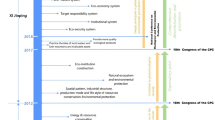Abstract
John Steinbeck’s 1939 novel can be given a reading that links events and the mentality of characters to mainstream schools of liberal and neo-liberal political theory: libertarianism, egalitarianism, and utilitarianism. Each of these schools is sketched in outline and applied to topics in rural political culture. While it is likely that Steinbeck himself would have identified with an egalitarian or utilitarian view, he resists the temptation to deny his Okie characters an authentic voice that matches none of these schools so well as it articulates an agrarian mentality once associated with Thomas Jefferson and today articulated by Wendell Berry. This reading of The Grapes of Wrath, in turn, can be interpreted as both a rebuke to contemporary social theorists who continue to impose an ill-fitting left-right dichotomy on working class political culture in rural America and as a roadmap suggesting ways that philosophy and rural sociology might engage one another more directly and productively with respect to contemporary rural development and environmental quality issues.
Similar content being viewed by others
References
Bentham J. (1879). An Introduction to the Principles of Morals and Legislation. Oxford, UK: The Clarendon Press
Browne W., J. Skees, L. Swanson, P. Thompson, L. Unnevher, (1992). Sacred Cows and Hot Potatoes: Agrarian Myths and Policy Realities. Boulder, Colorado: Westview Press
Carpenter F. I. (1941). The Philosophical Joads. College English 2: 315–325
Cochrane W. (1979). The Development of American Agriculture. Minneapolis, Minnesota: University of Minnesota Press
Cowen R. S. (1997). A Social History of American Technology. New York, New York: Oxford University Press
Eisinger C. (1947). Jeffersonian Agrarianism in The Grapes of Wrath. University of Kansas Review 14(Winter): 149–154
Fink D. (1999). Cutting into the Meatpacking Line. Chapel Hill, North Carolina: University of North Carolina Press
Friedman M., R. D. Friedman (1962). Capitalism and Freedom. Chicago, Illinois: University of Chicago Press
Griswold A. W. (1948). Farming and Democracy. New Haven, Connecticut: Yale University Press
Hardin G. (1968). The tragedy of the commons. Science 162: 1243–1248
Hospers J. (1971). Libertarianism: A Political Philosophy for Tomorrow. Los Angeles, California: Nash Publishing
Lisca P. (1972). “Editor’s introduction: The pattern of criticism.” In: P. Lisca (ed.). The Grapes of Wrath: Text and Criticism (pp. 695–719). New York, New York: Viking Penguin
Locke, J. (1789 [1956]). The Second Treatise of Government (An Essay Concerning the True Original, Extent and End of Civil Government), and a Letter Concerning Toleration. J. W. Gough (ed.). New York, New York: Macmillan
Lukes S. (1993). “Five fables about human rights.” In S. Shute and S. Hurley (eds.). On Human Rights: The Oxford Amnesty Lectures of 1993. (pp. 19–40). New York, New York: Basic Books
McGinn R. E. (1994). Technology, demography and the anachronism of traditional rights. Journal of Applied Philosophy 11: 57–70
McWilliams C. (1942). California pastoral. Antioch Review 2(March): 103–121
Narveson, Jan. (1988). The Libertarian Idea. Philadelphia, Pennsylvania: Temple University Press
Nozick R. (1974). Anarchy, State and Utopia. New York, New York: Basic Books
Rawls J. (1972). A Theory of Justice. Cambridge, Massachusetts: The Belknap Press
Rousseau J. J. (1761). A Discourse upon the Origin and Foundation of the Inequality among Mankind. London: UK: R. and J. Dodsley
Rousseau, J. J. (1762 [1993]). Emile. B. Foxley (tr.). Rutland, Vermont: J. M. Dent
Sandel M. (1982). Liberalism and the Limits of Justice. New York, New York: Cambridge University Press
Scherer D. (1983). The game of games. In: D. Scherer, T. Attig (eds.). Ethics and Environment. (pp. 204–213). Englewoood Cliffs, New Jersey: Prentice-Hall
Sen A. (1987). On Ethics and Economics. Oxford, UK: Basil Blackwell
Steinbeck, J. (1939[1972]). The Grapes of Wrath: Text and Criticism. New York, New York: Viking Penguin
Steinbeck, J. (1988). The Harvest Gypsies: On the Road to The␣Grapes of Wrath. Edited with an introduction by C. Wollenberg. Berkeley, California: Heyday Books
Taylor C. (1989). Sources of the Self: The Making of the Modern Identity. Cambridge, Massachusetts: Harvard University Press
Thompson P. B. (1997). Food Biotechnology in Ethical Perspective. London, UK: Chapman and Hall
Thompson P. B. (1998). Environmentalism, feminism and agrarianism: Three isms in search of sustainable agriculture. Agriculture and Human Values 12: 170–176
Thompson P. B. (2000a). Agrarianism as philosophy. In: P. B. Thompson, T. C. Hilde (eds.). The Agrarian Roots of Pragmatism. (pp. 25–50). Nashville, Tennessee: Vanderbilt University Press
Thompson P. B. (2000b). Jefferson and agrarianism In: P. B. Thompson, T. C. Hilde (eds.). The Agrarian Roots of Pragmatism. (pp. 118–139). Nashville, Tennessee: Vanderbilt University Press
Thompson P. B. (2003). Expanding the conservation tradition: The agrarian vision. In: B. A. Minteer, R. E. Manning (eds.) Reconstructing Conservation: Finding Common Ground. (pp. 77–92). Washington DC: Island Press
Wilson E. (1940). The Californians: Storm and Steinbeck. The New Republic 103(December 9): 784–787
Winter E. (1935). What next in California?. Pacific Affairs 8(1): 86–89
Wollenberg C. (1988). Introduction. In: J. Steinbeck (ed.). The Harvest Gypsies: On the Road to The Grapes of Wrath. San Francisco, California: Heyday Books
Author information
Authors and Affiliations
Corresponding author
Additional information
Paul B. Thompson holds the W. K. Kellogg Chair in Agriculture, Food, and Community Ethics at Michigan State University where he teaches in the departments of philosophy, agricultural economics, and CARRS (Community, Agriculture, Recreation and Resource Studies). He is currently conducting research on topics relating to farm animal welfare and to the likely significance of nanotechnology for the agrifood system.
Rights and permissions
About this article
Cite this article
Thompson, P.B. Agriculture and working-class political culture: A lesson from The Grapes of Wrath . Agric Hum Values 24, 165–177 (2007). https://doi.org/10.1007/s10460-006-9050-0
Accepted:
Published:
Issue Date:
DOI: https://doi.org/10.1007/s10460-006-9050-0




